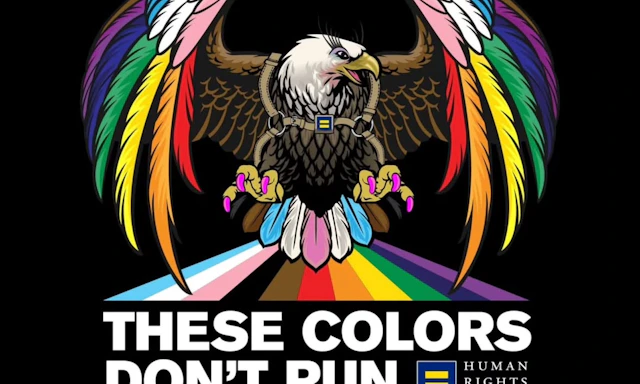
Cookies in use
HRC Remembers Dylan Gurley, Young Transgender Woman Tragically Killed in Texas
by Kathryn Smith •

20-year old Dylan Gurley, a transgender woman from Little Elm, Texas, was killed in Denton, Texas on July 23, 2024. She was found unconscious with multiple stab wounds by police and was subsequently declared dead at a local hospital less than an hour later. Dylan’s death is at least the 23rd violent killing of a transgender or gender expansive person in 2024 that HRC has identified. We say “at least” because too often these deaths go unreported or misreported.
Dylan was close with her family and regularly posted about them on social media. Her sister has since created a GoFundMe to raise money for a memorial that Dylan would have “wanted and deserved.” Dylan would have been 21 on August 18, and her family is also hoping to use funds to celebrate her birthday, as well. “We are just trying to put the pieces back together as best as we can and appreciate any and all help,” Dylan’s sister wrote in the GoFundMe description.
Dylan was experiencing homelessness at the time of her death, which further marginalized her. At the moment, little is known about Dylan’s death and no suspect has been found. Denton police have asked that anyone with information about her death contact them by calling 940-349-7977. Anonymous tips can be reported at dentoncountycrimestoppers.com.
Dylan is at least the fifth transgender person to be murdered this year while experiencing homelessness — and this is tragically not a coincidence. Studies show that 30% of transgender individuals have experienced homelessness at some point in their lives, which further endangers them and puts them in the path of fatal violence. Dylan deserved safety while she was alive, and now she deserves justice.

Texas unfortunately remains the state with the highest number of anti-trans murders in the nation. As of this writing, Dylan is the 36th trans or gender-expansive victim of fatal violence identified in Texas since HRC began tracking fatal violence in 2013, with Texas accounting for more than 1 in 10 of all victims HRC has identified to-date. All but one of these 36 victims were transgender women, and more than half (55.6%, n=20) ) were Black transgender women, specifically. More than one in ten of all victims in Texas were aged 21 or younger.
In an injustice compounding this tragedy, Dylan was misgendered in some media reports and in her medical report. Anti-transgender stigma is exacerbated by callous or disrespectful treatment by some in the media, law enforcement and elected offices. According to HRC research, it is estimated that approximately two-thirds of all known victims were misgendered by the media and/or by law enforcement. In the pursuit of greater accuracy and respect, HRC offers guidelines for journalists and others who report on transgender people. HRC, Media Matters and the Trans Journalists Association have also partnered on an FAQ for reporters writing about anti-trans violence.
At the state level, transgender and gender non-conforming people in Texas are not explicitly protected from discrimination in employment, housing, education and public spaces. Texas does have multiple anti-LGBTQ+ and anti-transgender laws on its books, and does not include gender identity as a protected characteristic in its hate crimes law. Though we have recently seen some political gains that support and affirm transgender people, we have also faced unprecedented anti-LGBTQ+ attacks in the states. In June 2023, the Human Rights Campaign declared a National State of Emergency for LGBTQ+ Americans, as a result of the more than 550 anti-LGBTQ+ bills introduced into state houses that year, over 80 of which were signed into law—more than in any other year.
We must demand better from our elected officials and reject harmful anti-transgender legislation at the local, state and federal levels, while also considering every possible way to make ending this violence a reality. It is clear that fatal violence disproportionately affects transgender women of color, especially Black transgender women. The intersections of racism, transphobia, sexism, biphobia and homophobia conspire to deprive them of necessities to live and thrive, so we must all work together to cultivate acceptance, reject hate and end stigma for everyone in the trans and gender-expansive community.
Love conquers hate.


